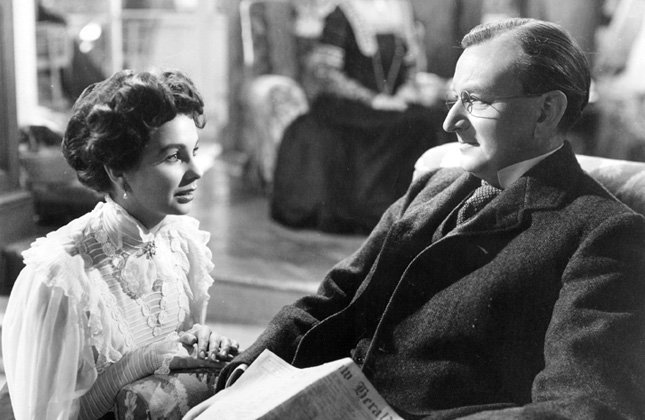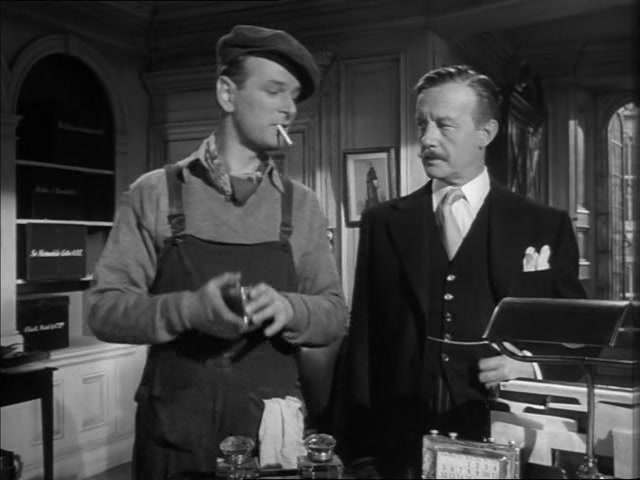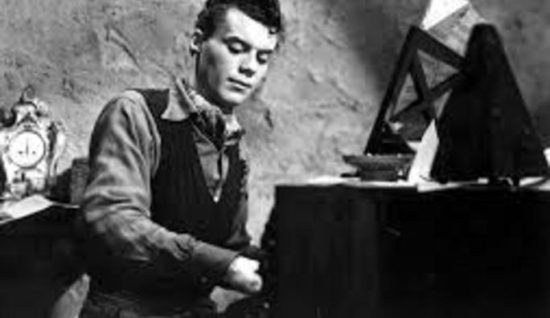“In my twenties the critics said I was brutal, in my thirties they said I was flippant, in my forties they said I was cynical, in my fifties they said I was incompetent and then in my sixties they said I was superficial.”
So speaks W. Somerset Maugham in his wry introduction to Quartet, an anthology film inspired by his short stories. On the basis of the four featured, plus the six more in Trio and Encore, the charge is almost entirely without merit. Many of Maugham’s stories are cynical, one is undeniably brutal and a few are wonderfully irreverent.
All demonstrate his trenchant understanding of human nature.
Quartet comprises of four stories—‘The Facts of Life’, ‘The Alien Corn’, ‘The Kite’ and ‘The Colonel’s Lady’—all adapted by playwright R.C. Sherriff, with four different directors. ‘The Facts of Life’ is a comic vignette featuring Basil Radford as a father who, on the eve of his impressionable son’s first solo visit to Monte Carlo, gives him three pieces of stolid, middle class advice—which the young man proceeds to ignore. The story seems thoroughly predictable, until a twist reveals Maugham’s dry, peculiarly English sense of humour. (Radford’s frequent co-star, Naunton Wayne, appears briefly as one of Radford’s friends and gets the story’s last, best line.)
‘The Alien Corn’ also takes aim at convention but with less mirth. A young Dirk Bogarde plays the scion of wealthy, landed gentry who confounds his family by declaring that he wants to be a concert pianist. Bogarde’s cousin (Honor Blackman) persuades his father to let him study in Paris for two years, on the understanding that his playing will then be judged by an impartial expert: if he has talent, he can continue; if not, he must choose another career. Bogarde is excellent as a young man consumed by a passion utterly alien to everyone around him. (You even forgive his obvious miming at the keyboard.) His intensity is matched only by Françoise Rosay, who plays his judge. Rosay’s pianist seems to have descended from the Empyrean; when she leaves, some of the film’s fire goes with her.
‘The Kite’, a psychological study of a man torn between his mother and wife, is followed by ‘The Colonel’s Lady’, the only story in the anthology not centred on a young man. The Colonel in question (Cecil Parker) is a conceited, obtuse oaf who flails when his wife (Nora Swinburne), whom he has long ceased to cherish, writes a best-selling, sensuous volume of poetry. The story builds to a surprisingly poignant climax, which Parker and Swinburne perform perfectly.

Quartet was so successful it was soon followed by Trio: another anthology of Maugham’s stories, once again hosted by Maugham himself from his villa on the French Riviera. ‘The Verger’—about an easy-going, illiterate verger (James Hayter)—plays like a humorous inversion of one of Roald Dahl’s tales of the unexpected. ‘Sanatorium’, the longest of the three stories, suffers from a lack of concision and collapses into a soap opera about various patients’ love lives and eccentricities. It’s a criminal waste of Jean Simmons.
The real highlight is ‘Mr. Know-All’, about the insufferable, irrepressible Max Kelada (an almost unrecognizable Nigel Patrick), who appoints himself the life and soul of the party on a cruise ship and drives everyone else to distraction.
Trio was a hit, leading to Encore, an anthology based on three more of Maugham’s stories. Maugham self-deprecatingly excuses the repeat visits to his home by explaining to viewers that this way, if we grow bored, we can always enjoy the view. ‘Gigolo and Gigolette’, set in the surprisingly high-risk world of Monte Carlo night club acts, reveals Maugham’s empathy for daredevil performers who risk their lives to entertain, and his contempt for the audiences who take them for granted.
‘Winter Cruise’ is a thoughtful portrait of an English spinster, played with great sensitivity by Kay Walsh. Another of Maugham’s tiresome passengers (why so many?), her good heart can’t compensate for her incessant chatter. The harassed crew decide to distract her with a shipboard romance, with unexpected consequences.

‘The Ant and the Grasshopper’ is the most purely entertaining story of the three, thanks chiefly to Nigel Patrick, this time appearing as the scrounging, scoundrel ‘Grasshopper’ brother of an industrious ‘Ant’. Patrick sweet talks, blackmails and cheats his way through a performance that’s essentially a preview of his wicked Major Race in The League of Gentlemen—and is a joy to behold.
Maugham may not always have been popular with the critics, but he was with audiences and it’s easy to see why. Solidly constructed and beautifully acted, Quartet, Trio and Encore all display his eye for mores and manners, his keen sense of irony and his unerring instinct for what makes people tick.

Leave a Reply